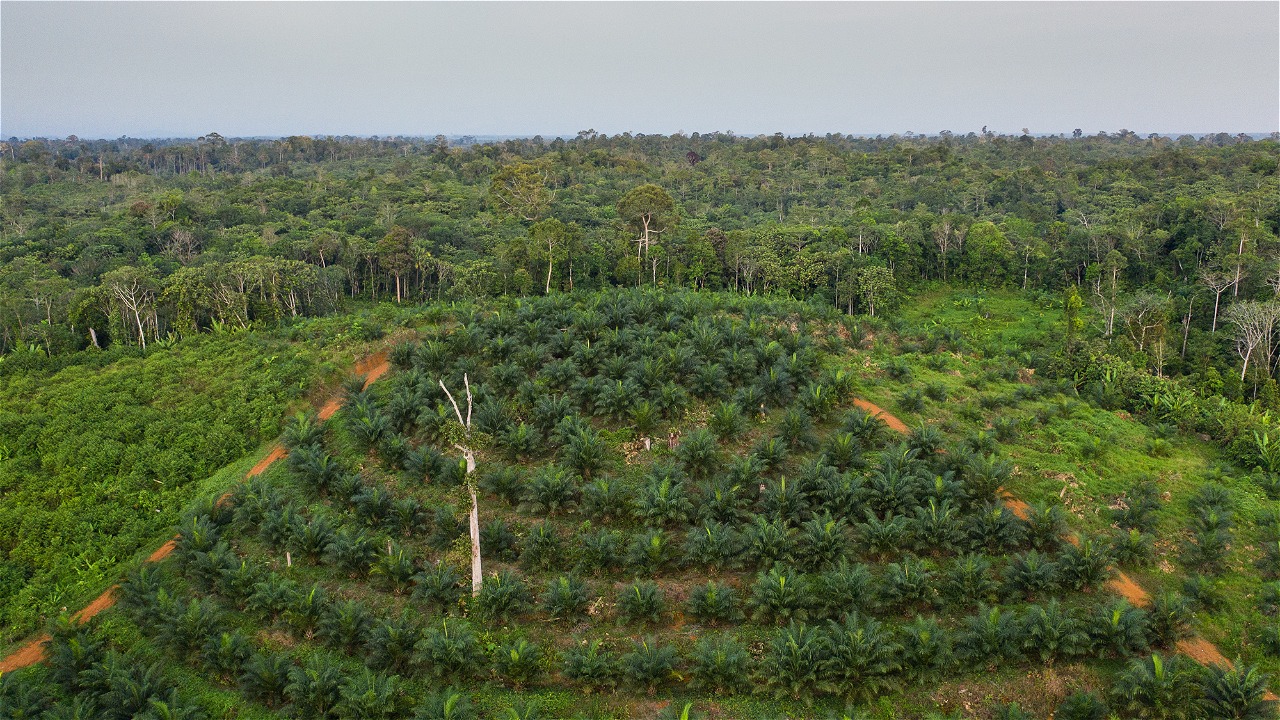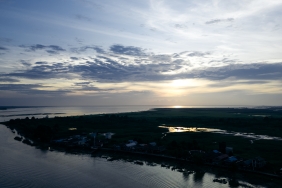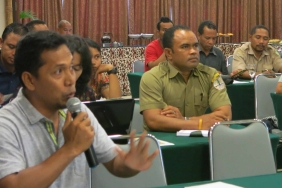IMPORTANT STEPS TOWARDS SUSTAINABLE OIL PALM PLANTATIONS IN EAST KALIMANTAN
Samarinda, East Kalimantan - Around 40 plantation extension workers and oil palm farmers from 10 districts in East Kalimantan gathered for a training on High Conservation Value Areas (HCVAs) in the Heart of Borneo (HoB) region. 7 districts are located in the HoB region namely Nunukan, Malinau, West Kutai, Bulungan, Berau, Kutai Kartanegara, and East Kutai). The other 3 districts are Paser, Panajam Paser Utara, and Tana Tidung). The training was held in Samarinda on June 26-28, 2012 and was a collaboration between the East Kalimantan Provincial Plantation Office, the East Kalimantan HoB Working Group, and WWF-Indonesia.
For three days, the participants received materials on high conservation value areas, human-wildlife conflict mitigation, and field practice. KBKT itself has been established as one of the instruments that must be carried out in the Minister of Agriculture Regulation No. 19 of 2011 concerning Guidelines for Indonesian Sustainable Palm Oil Plantations. KBKT is not only implemented for companies, but is also planned to be carried out by small-scale plantations managed by oil palm smallholders. In addition, in the multi-party forum to promote the growth and use of sustainable palm oil or RSPO (Roundtable on Sustainable Palm Oil), KBKT is also one of the instruments carried out in the management of oil palm plantations.
On the last day of the training, participants practiced the identification of high conservation value (HCV) areas in the University of Mulawarman (Unmul, Samarinda) Education Forest. There, extension workers and oil palm farmers went into the forest and identified plants, animals and signs of existing animals in the forest as an indication of HCV, including the presence of rivers as a source of water.
The Ministerial Regulation on Indonesia's sustainable palm oil plantations is a government effort to encourage the implementation of sustainable palm oil principles that integrate ecological, environmental services, and socio-cultural aspects. Many oil palm plantations in East Kalimantan have not yet implemented these principles. As a result, environmental and socio-cultural impacts cannot be avoided. The sustainability of forests and the species that live in them is threatened. Not to mention the socio-cultural conflicts that arise given the spread of indigenous peoples who have customary areas in the form of forests.
Ir. Yus Alwi Rahman, M.Si from the Plantation Agency said, "It is hoped that this training can help increase the capacity of plantation extension workers who will assist oil palm farmers in implementing sustainable oil palm plantations. This will directly support the implementation of Kaltim Green and support the Heart of Borneo in East Kalimantan.""
Wiwin Effendy, WWF East Kalimantan Coordinator added, "Through this training, it is expected that the plantation extension workers can become facilitators in each district in assisting oil palm farmers to implement sustainable oil palm plantations. Not only that, they will also get knowledge about handling wildlife conflicts, so that animals are no longer considered as pests but part of the plantation that must be managed."





